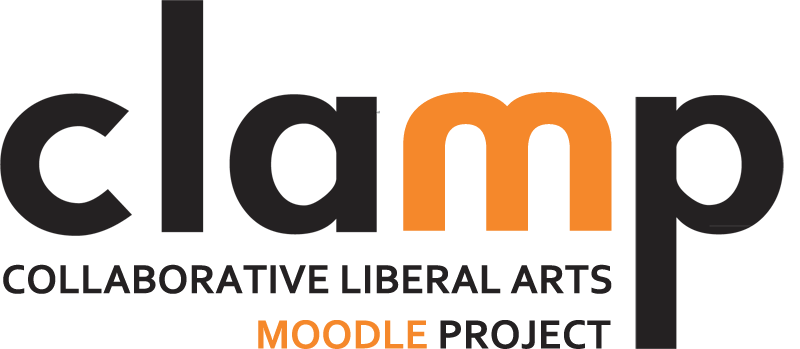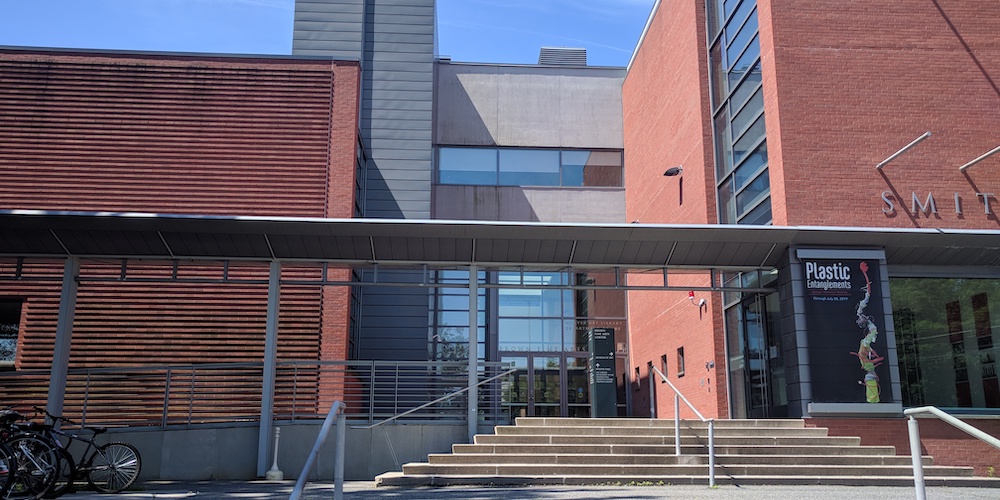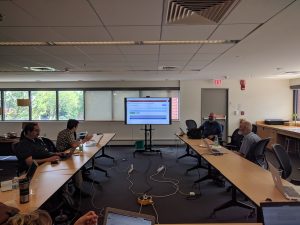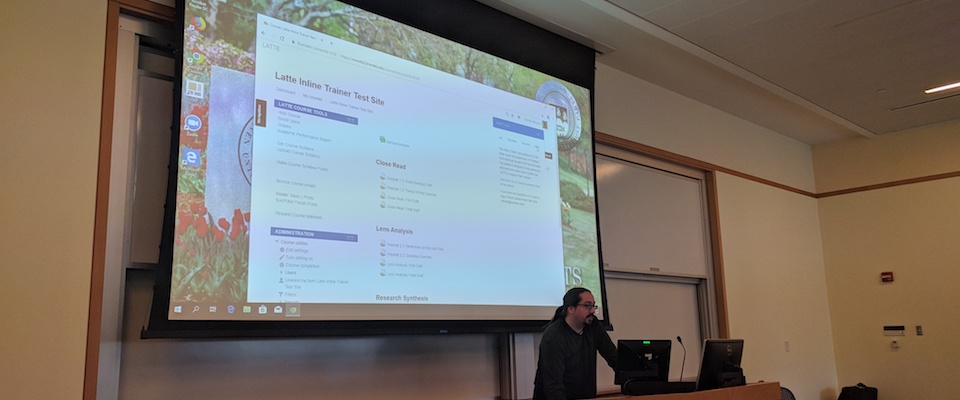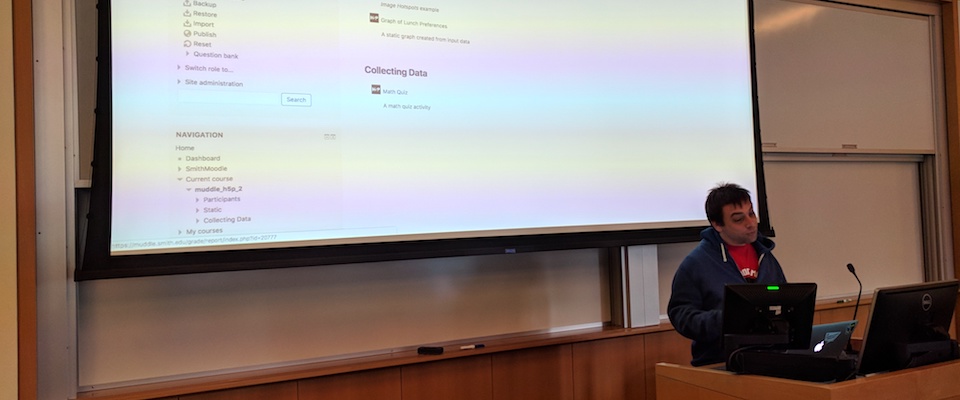
The theme of this summer’s Hack/Doc Fest is the snowclone:
noun
-
-
- a cliché and phrasal template that can be used and recognized in multiple variants.
-
Examples of this concept include “X is the new Y”, or “in space, no one can X.” Localized variants for this Hack/Doc include “Have Moodle, will travel”, “The mother of all tracker issues”, and “In Soviet Russia, Moodle Hack You.” That established, we began tackling the ever-expanding task list hashed out during Sprint Day.
Timeless Gradebook documentation
The morning session featured a large group discussion of the grade book, including common pain points and our various approaches to them. We created a new shared Google document, Gradebook Documentation and Advice, which contains a set of best practices and links out to individual school’s documentation. The document also contains a summary of overlaps between everyone’s documentation, which might be useful for onboarding new faculty.
Gaming lab tour
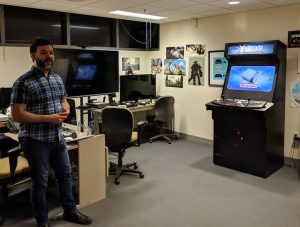
In the afternoon Nick Baker, our host at Smith’s Imaging Center, conducted a tour of the Gaming Lab. The lab is a collaboration with Film and Media Studies, and provides a space for students to “play, explore, experience and critique video games and virtual environments.”
From the task list
Moodle 3.7 Liberal Arts Edition release
The first Moodle 3.7 LAE release is ready for testing. Moodle core completely rewrote the internals of the forum module for this release. This change was long overdue and CLAMP is excited for the future changes this “brush-clearing” will enable. The only downside is that the Anonymous Forums patch had to be completely reimplemented to accommodate the change!
Exploring LTI
Several participants followed up on Daniel Landau’s LTI workshop by experimenting with custom LTI integrations and have started work on a document called A Framework for Evaluating Potential LTIs. This document explores what an LTI is, what common capabilities of an LTI are, how they’re installed, and potential pitfalls when using an LTI. We’re also curating a list of existing LTI installations at CLAMP schools.
Workday
Several schools are moving to Workday as a backend information system, or considering it. Chad Bergeron at Brandeis has started documenting their approach to a potential Workday-Moodle integration.
Competencies for information literacy
Occidental College is working on ways to more closely align their information literacy instruction with the ACRL IL Framework. Although we are tasked with IL instruction, there is no requirement that any courses embed this sort of instruction into the curriculum. This past semester, we have been investigating mapping ACRL frames to Moodle competencies and associating activities/assignments/projects on which we are collaborating with faculty with those competencies. Darren Hall is putting together a document for setting up and using competencies for this effort.
Navigation customizer
Andy Zito from Lafayette College has built a new plugin, Flat Navigation Customizer. This plugin will allow site administrators to add custom links to the left-hand “flat navigation” or “drawer” on sites using the Boost theme. One intended to use case is to add a link for Quickmail, eliminating the need for adding the block to every course.
Moodle 3.7 review
As mentioned above, there are numerous changes to the forum in 3.7. One new feature is “in-page forum post reply.” Clicking reply in a forum now opens a reply window in situ, without taking you to a new page. Note that the inline reply doesn’t load the Atto editor. While not technically a bug, this limits this type of reply to “quick” responses only. Adding images, formatting text, or other such niceties (audio/video WebRTC) requires clicking the “advanced” link (which isn’t necessarily obvious), which will bring you to the previous separate page for replying.
Another new forum feature is the “private reply“. Teachers and managers may make a private reply to a post; the reply is visible to the student to whom the reply was made, and all users with elevated roles. Students may not make private replies, and you cannot reply to a private post. After much discussion, CLAMP will not support replying to an anonymous forum post.
CLAMP infrastructure
Daniel Landau and Charles Fulton completed migrating the CLAMP Moodle Exchange to new hosting on Amazon Web Services, and Daniel’s now working on reimplementing CLAMP’s development environment.
Hack/Doc Fest Summer 2019 at Smith College: Event page | Sprint | Day 1 | Day 2 | Day 3
